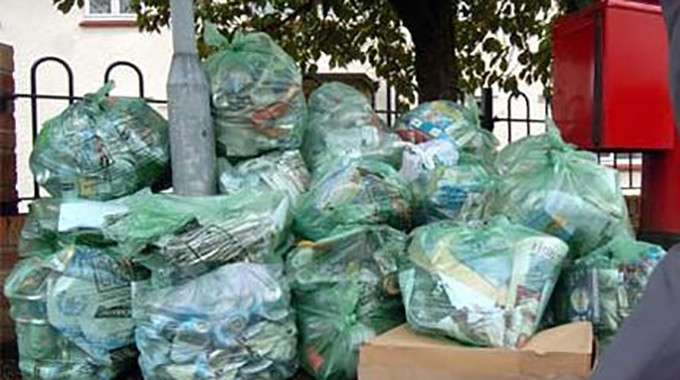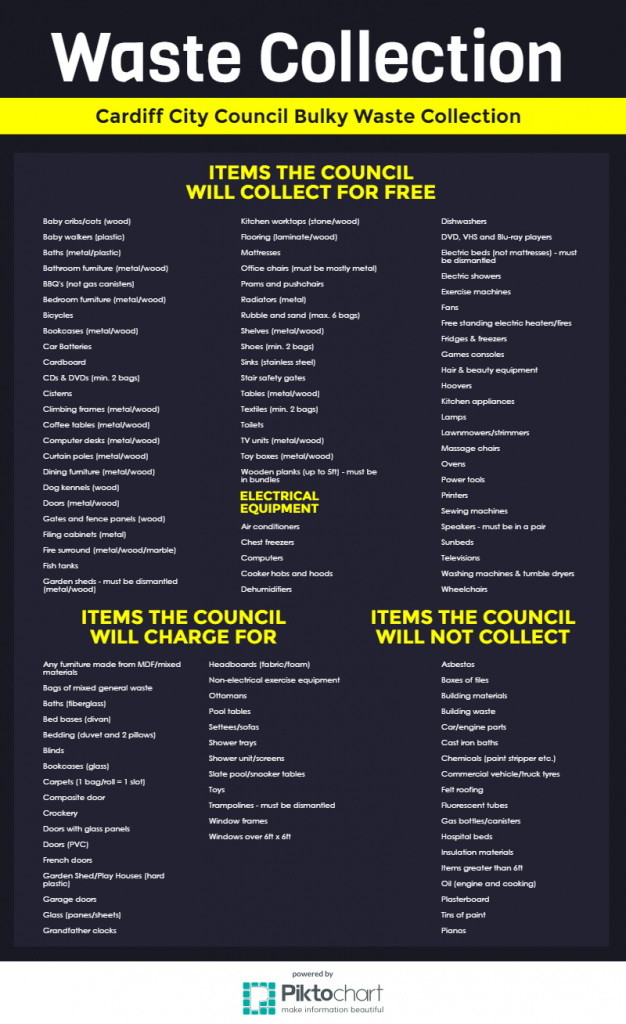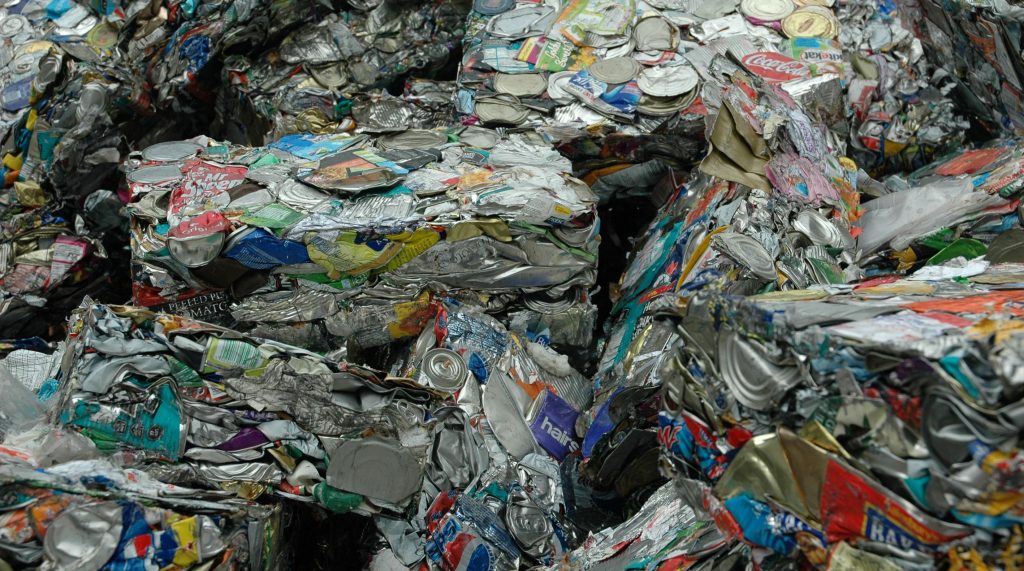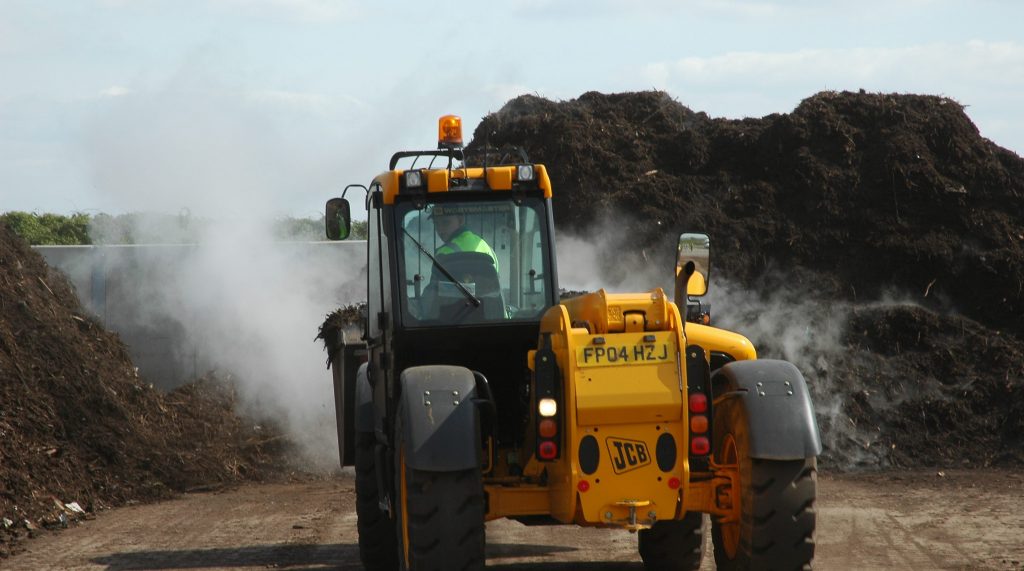Cardiff Council is collecting items people no longer need directly from their doorsteps for recycling. What is the rationale behind this initiative and will it work?

The image ‘hits’ you just like the smell of it. The sight of piles of waste in streets corners, in front of residences makes you want to look elsewhere and walk away quickly as the foul smell engulfs you.
As a friend puts it, “it’s an awful lot of rubbish!” and this is a common scene in Cardiff and in most cities across the world. In as much as the Cardiff Council tries to tackle waste management in the city, it appears not to be enough.
Not resting on its oars, the Council’s resolution this year is to go a step higher in its recycling activities in the city to protect the environment.
In line with this, during the latter part of last year, the Council launched a new initiative to collect items that people did not need directly from their doorstep for recycling.
This was to enable residents who could not carry their items to a Household Waste Recycling Centre (HWRC) have the ‘luxury’ of having such items collected from their homes and to boost its recycling rate which the Welsh government aims to be at 70 per cent by 2025. However, there’s a snag here – the council had a tall list of items that they would collect free of charge; those that will be collected at a fee and those that would not be collected at all.
“From November 28th onwards, residents will be able to book their free collection by calling Con-nect to Cardiff on 2087 2087(8). Once the collection is scheduled, we will agree where the resident puts the items for collection and our workers will come and pick it up at the scheduled time given at the time of the booking.
If the item is reusable, there are also a number of charities available for residents to use including, YMCA Housing Association, British Heart Foundation and Track 2000,” the Council said.
Since the programme started, a spokesman for the Council says: “The initiative is going well and we thank the public for using this service. Those that have cars are encouraged to use any of our Household Waste Recycling Centres to dispose of their bulky waste.”

So far, it seems the initiative is getting a good reception on the streets.
“I think it is a meaningful initiative,” says 24-year-old Toby, who lives on Woodville Road. “People who are poor and cannot afford to buy certain things they need, will benefit from the items people throw away which are in good shape.”
However, there are others who think this is another ‘talk shop’ by the Council and nothing much will come out of it.
“The streets are piled up with rubbish which have not been collected by the Council. When you put your things out to be collected, it takes a long time and they charge you as well. I’m not too sure of what the Council will do different with this new recycling programme,” said the manager of a letting agency who preferred to remain anonymous.
Still, there are others who are looking at the positive side of the initiative and giving it thumbs up.
“Apart from the fact that it will help save the environment, it will help students especially international students who at the end of their courses may have to leave a lot of stuff they cannot carry back home even if they have to pay a little for collection,” said Ferila Brown, a student of environmental sustainability at Cardiff University.
Facts behind the figures
A feather in the cap for the Council is the recent study which was conducted by Edelman Intelligence on behalf of Viridor (Viridor UK Recycling Index 2016) which showed that Cardiff is the most active city for recycling in the UK ranking higher than London, Manchester, Glasgow and the South West.
Additionally, Cardiff’s recycling rate has increased from 4% to 58.1% in the last 10 years.
According to the Council 3195 tonnes of recycled waste was collected over the festive period, compared with 2564 tonnes in 2014 and 3034 tonnes in 2015. This feat the Council attributed to the move of providing smaller bins, or restricting the number of bags that can be put out for collection in a bid to limit the amount of general waste and encourage residents to recycle.
Recycling activities

A spokesman for the City of Cardiff Council explains that the council adheres to the European Waste Hierarchy which is to reduce, reuse, recycle and recover value from waste.
The Council has a complete recycling service with the aim to send zero waste to landfill. From all indications, the Council has taken its recycling activities seriously as all the recyclable materials it collects are processed through a Material Reclamation Facility (MRF) where the waste is separated into different types – paper, tins, aluminium, glass and three types of plastics and the material is then baled and sold for reuse.
Additionally, food waste collected from residents goes through a technology called anaerobic digestion which allows the food waste to break down in large containers in the absence of air to produce a green gas which can be used to generate electricity.
Will initiative work?

An environmental charity, Keep Wales Tidy, lauds the initiative of the Cardiff Council and it is optimistic that it would work.
“As a charity we have embarked on similar activities such as ‘Recycle it’ where we assist organisations and schools across Wales to get rid of IT and electrical gadgets that they do not want responsibly and in situations where it can be recycled so it does not end up at a landfill site” said a campaigner with the organisation.
Additionally, Keep Wales Tidy also encourages the reuse and recycling of carrier bags and encourages people to donate their 5p for carrier bags to them to sustain the environment.
The 5p carrier bag was introduced to limit the usage of carrier bags in Wales and the proceeds rein-vested back into the environment.
Recycling in some countries have yielded great results with most adopting the ‘zero waste’ initiative. For instance, Sweden can be described as a country that has gone through a “recycling revolution” in the last decade. In 1975, it had only 38 per cent of recycled household waste but this has increased to 99 per cent presently. Interestingly, as a rule, recycling stations are no more than 300 metres from any residential area.
An environmentalist, John Banks, believes this project will work provided residents cooperate with the Council. “It’s not a hard task. It is just placing a phone call for your items to be collected,” he said.
Recycle to the rescue?
As technologies advance, population increases and lifestyle changes, the amount of waste humans generate continue to increase which has a negative impact on the environment and people. Recycling starts with the individual; starts at home.
Anytime, you generate waste; anytime you have to throw away rubbish; think of how you can save the environment – think about the four Rs – can I reduce waste? Can I reuse what I am about to throw away? Can it be recycled? And can it be recovered for value?
Do you want to learn how to recycle? See http://www.greenworks.co.za/recyclepage.html
